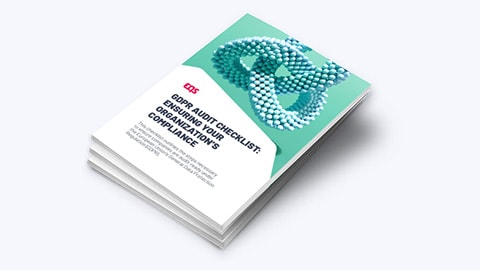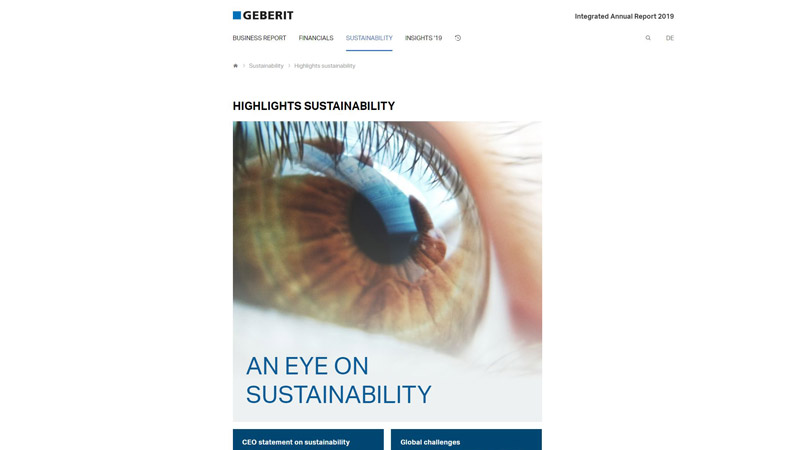How to Communicate Your Annual Results to Investors and the Media
Digital annual reports, webcasts, newswires, IR websites and more

Digitalisation in Investor Relations is progressing fast and nowhere more so than in the field of communicating annual results. With new trends relating to events like online AGMs, companies should look to professionalise how they speak to investors and the media. We examine best-practice solutions to ensure your annual results reach the widest and most relevant target audience.
Annual Reports
Annual reports summarise and provide a record of yearly business activities. Publicly traded corporations are required to produce these every year for shareholders and other stakeholders.
The content required in an Annual Report is quite specific and normally determined by relevant domestic regulations. In Germany the annual report must for example contain a management report, annual financial statements, the proposal for the appropriation of profits (if not already included in the annual financial statements), the auditor’s report on the annual financial statements, the report of the supervisory board and a declaration of compliance with the Corporate Governance Code. Often companies choose– but are not required to – include a letter from the management board to the shareholders, a note on the overall economic situation and the economic situation in the relevant industry as well as a social, environmental, risk and research report.
As well as including all of this information, the Annual Report is an important touchpoint with stakeholders and needs to be engaging and accessible.
Annual reports not only disseminate important information, they help to create a positive impression of the company to stakeholders and opinion leaders.
What different kinds of annual report formats are there?
The digital annual report is considered best practice in the field of annual reporting. Interactive content such as key financials analysers, performance calculators, intelligent search functions and links to external sources for further information provide users with a variety of features unavailable in a printed report. Digital annual reports can also integrate videos: a useful tool when reaching out directly and authentically to stakeholders.
What format options are there when digitalising your annual report?
- Quick Summary format: This is where companies provide a summary of key information in a one-page scrolling format.
- Fully Digital format: This is a complete translation of an annual report into multiple web subpages and ensures no information is missed. Key financials can be quickly exported directly into Excel to save analysts’ time.
- Quick Summary format + PDF: A third option is to have a key summary webpage with additional sections linked to content in PDF format. This provides the most detailed level of disclosure but is a little more resource friendly.
What are the advantages of digital annual reports?
With the increased use of the Internet, digital annual reports are becoming more and more relevant to stakeholders. Digital annual reports offer the reader a clear added value compared to the print version:
- Ensure a larger reach for your report through online display and dissemination.
- Provide a great user experience with mobile-friendly layouts which make navigation of the annual report easier for inexperienced users.
- Eliminate the need for printing on paper which saves money and promotes sustainability
- Offer more options for the visualisation of content, including animated figures and graphics, video integration and interactive elements.
What are some best practices when making your annual report digital?
Any digital presentation of the annual report (which for some companies can go over 200 pages) needs to be intuitive and user-friendly. The following best practices ensure successful digitalisation of your annual report:
- Offer simple and clear navigation and the easy finding of content via an intelligent search function. This is particularly important if your annual report contains a large amount of information.
- Start with an initial summary of the most important key facts for each section. This enables those who want to dig deeper to expand the section contents to learn more, but also assists those who want an overview.
- Include interactive elements, such as interactive charts, diagrams and video sliders to capture reader interest and assist their comprehension of the information.
- Turn financials into graphics. A table containing 20 line items across multiple columns may be significantly less engaging than dynamic graphs and trend lines.
- Provide data for download, for example the option to download the complete report as a PDF or certain data in an Excel table.
Live communication of results to stakeholders – investor events, webcasts and more
Events are also an important part of annual results communication with stakeholders. They offer stakeholders the chance to have direct contact with the company management, ask questions and gain feedback. Key events in the IR calendar include the annual general meeting (AGM), analyst conferences and financial results press conferences.
To maximize participation, many companies are now choosing to run these events as audio or video webcasts. These are essentially internet broadcasts of a company’s annual results presentation where participants have the opportunity to pose questions to the company via the webcast Q&A facility or conference call. Participants are also able to see visual aids of the presentation such as slides and many providers make an on-demand version of the event available afterwards for participants who were unable to join live.
Audio and video webcasts avoid the time and cost involved in organising an in-person event, while still offering stakeholders the chance to participate. They ensure that those unable to travel to an in-person event are still able to participate live. In many countries it is now also possible to run your AGM as an online webcast, including the provision of online voting and secure entry approval for participants. Find out more about online AGMs here.
Distribution of results across major online channels
Distributing your results across various online channels also ensures widest possible reach for your news at the touch of a button.
Newswires
Financial newswires are a particularly helpful tool for the electronic distribution of your annual results. Newswire ensures your information reaches all stock exchange traders, analysts, institutional investors and all other relevant players in the financial world as well as the prescribed legal bodies in real time. Newswires not only remove the manual labour involved in researching email distribution lists, they also usually offer – through cooperation agreements with relevant parties – direct access into editorial systems, terminals (such as Bloomberg Terminals) and news agencies (such as Reuters).
They are extremely efficient for achieving widespread distribution. They do not rely on journalists being in the office that day to pick up the news announcement and through terminals and database systems they reach all relevant players in the financial world in one easy step. Find further information on newswires here.
Internal distribution lists
Any internal distribution lists of investors should also receive announcements on your financial results. Existing investors are so called because they are invested in your company’s financial performance and future. In IR terms, these are your customers and it is vital to nurture these relationships.
Social channels
With the many opportunities social media offers for financial communication, reach and interaction, it pays not to neglect your social channels when it comes to communicating your annual results. In terms of channels, Twitter dominates but LinkedIn has also become one of the most relevant social media channels for business communications. With the surge in visual content, Instagram is also becoming steadily more relevant. The most important thing is good-quality content designed specifically for your individual channel. Many companies have seen successful financial posts using animation and smart graphic design.
IR website
A company’s IR website is one of the most important sources of information available to investors; allowing them to understand your investment story, vision and strategy as well as access key financials. Getting it wrong can lead to investors, especially those prospecting the company, simply going elsewhere. Updating is simple, automated and straightforward with a single platform that maps all IR workflows. The latest company news not only appears in the newsfeed, but can for example also be displayed in the stock chart. Find out more about best practices for IR websites.
Conclusion
Communicating annual results is a requirement for every listed company, but it is for every individual IR Manager to decide which communication channels make most sense for their company. When used cleverly, digitalisation can make communicating annual results easier, more efficient and help to achieve the highest reach.

EQS IR COCKPIT is the world’s first platform which brings together and coordinates investor data, contact management, disclosure obligations and news distribution in one tool








